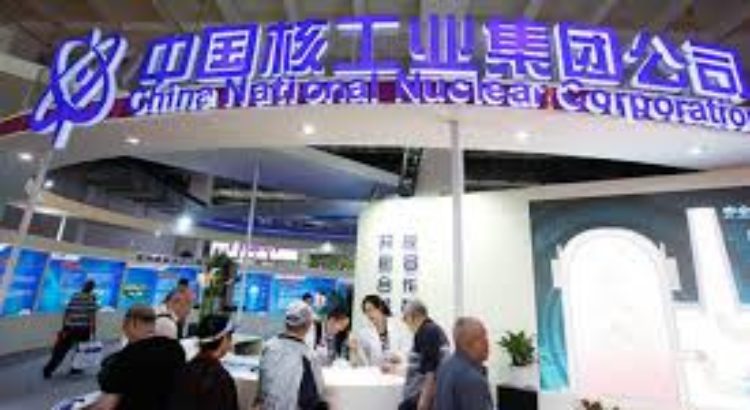Asia/China/universityworld
Resumen: China establecerá la primera universidad nacional dedicada a la investigación nuclear, la capacitación y el intercambio académico con el apoyo del desarrollador estatal de energía nuclear del país, haciéndose eco de la apremiante necesidad de talento especializado. China National Nuclear Corporation (CNNC), el conglomerado líder que supervisa todos los programas nucleares militares y civiles de China, invertirá y construirá la Universidad de Tecnología Nuclear de China en Tianjin, en el noreste de China, anunció la corporación la semana pasada. Como parte de un acuerdo estratégico entre la CNNC y el gobierno municipal de Tianjin, la nueva universidad funcionará como base para la capacitación técnica, los programas de posgrado y doctorado, así como para la investigación y el desarrollo de tecnología básica. Según el anuncio, también se está creando una base de desarrollo industrial de alta gama.
China will establish the first national university dedicated to nuclear research, training and academic exchange with support from the country’s state-owned nuclear power developer, echoing a pressing need for specialised talent.
China National Nuclear Corporation (CNNC), the leading conglomerate that oversees all of China’s military and civilian nuclear programmes, will invest in and build the China Nuclear Technology University in Tianjin in China’s Northeast, the corporation announced last week.
As part of a strategic agreement between the CNNC and the Tianjin municipal government, the new university will function as a base for skills training, postgraduate and PhD programmes, as well as core technology research and development. A high-end industry development base is also in the making, according to the announcement.
China is actively trying to fill a talent gap in nuclear technology as it rolls out dozens of reactor units and power plants, expected to come online within the next few years. According to the Carnegie Endowment for International Peace, China iswell on course to lead the world in nuclear power deployment, but Chinese experts say universities and colleges are now struggling to keep up with a rapidly rising demand for labour.
«China has many nuclear power projects and will continue to develop, which has led to a severe shortage of nuclear talent in power plant design, engineering construction, operations and security control,» says Wan Gang, director of the China Institute of Atomic Energy.
Earlier this year, Wan had urged that a nuclear tech university be built at the national level and by international standards, because existing programmes can only satisfy “less than half” of the demand for talent from the national developer.
“In 2016, only 20.29% of the 2,300 graduates CNNC hired majored in nuclear-related courses,” Wan said.
China has outlined an ambitious target for installed nuclear capacity in its blueprint for 2016-20, also known as the 13th Five-Year Plan. Many Chinese universities now offer nuclear technology related programmes, including Tsinghua University, Peking University and the University of Science and Technology of China.
Tsinghua University has the biggest nuclear research capacity among Chinese universities and colleges with a comprehensive research and development centre, the Institute of Nuclear and New Energy Technology, and three nuclear reactors. The institute now has about 500 faculty members and over 200 graduate students, according to Tsinghua University.
Institutions also recruit as part of the Thousand Talents Program, which lures top Chinese and foreign experts to scientific research and innovation in Chinese academia. However, international recruitment for nuclear programmes is difficult as the subject is “sensitive in nature”, says a report by CNNC highlighting talent cultivation on campus.
A lack of qualified and well-trained nuclear labour can come with dire consequences wherever safety is concerned. In 2016, for example, the National Nuclear Safety Administration made public 16 safety failures in nuclear plants nationwide, and all of them were caused by mistakes made by staff members.
«Not enough qualified personnel is threatening nuclear power security,” says Wang Yinan, a researcher at the State Council’s Development Research Center.
Experts say an estimated 30,000 to 40,000 additional nuclear professionals are needed in China within the next decade, when the nation could only produce “a few hundred” nuclear-major graduates every year.
Fuente: http://www.universityworldnews.com/article.php?story=20180628130750547
Imagen tomada de: https://www.straitstimes.com/sites/default/files/articles/2018/06/21/bp_cnnc_210618_74.jpg







 Users Today : 34
Users Today : 34 Total Users : 35460243
Total Users : 35460243 Views Today : 42
Views Today : 42 Total views : 3418937
Total views : 3418937